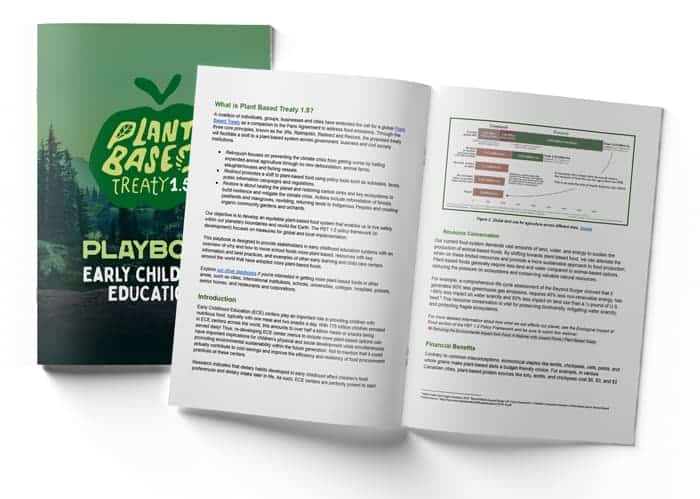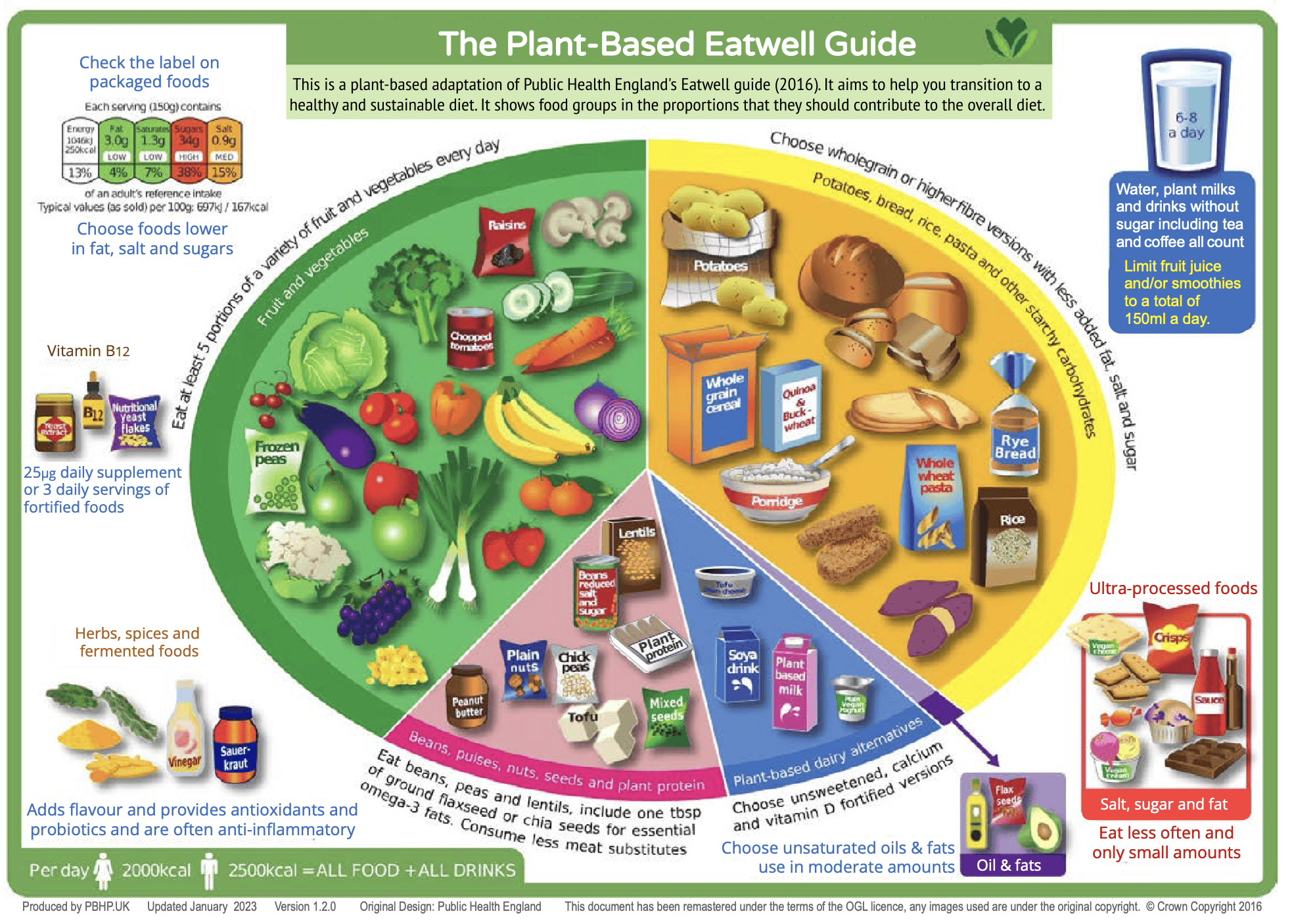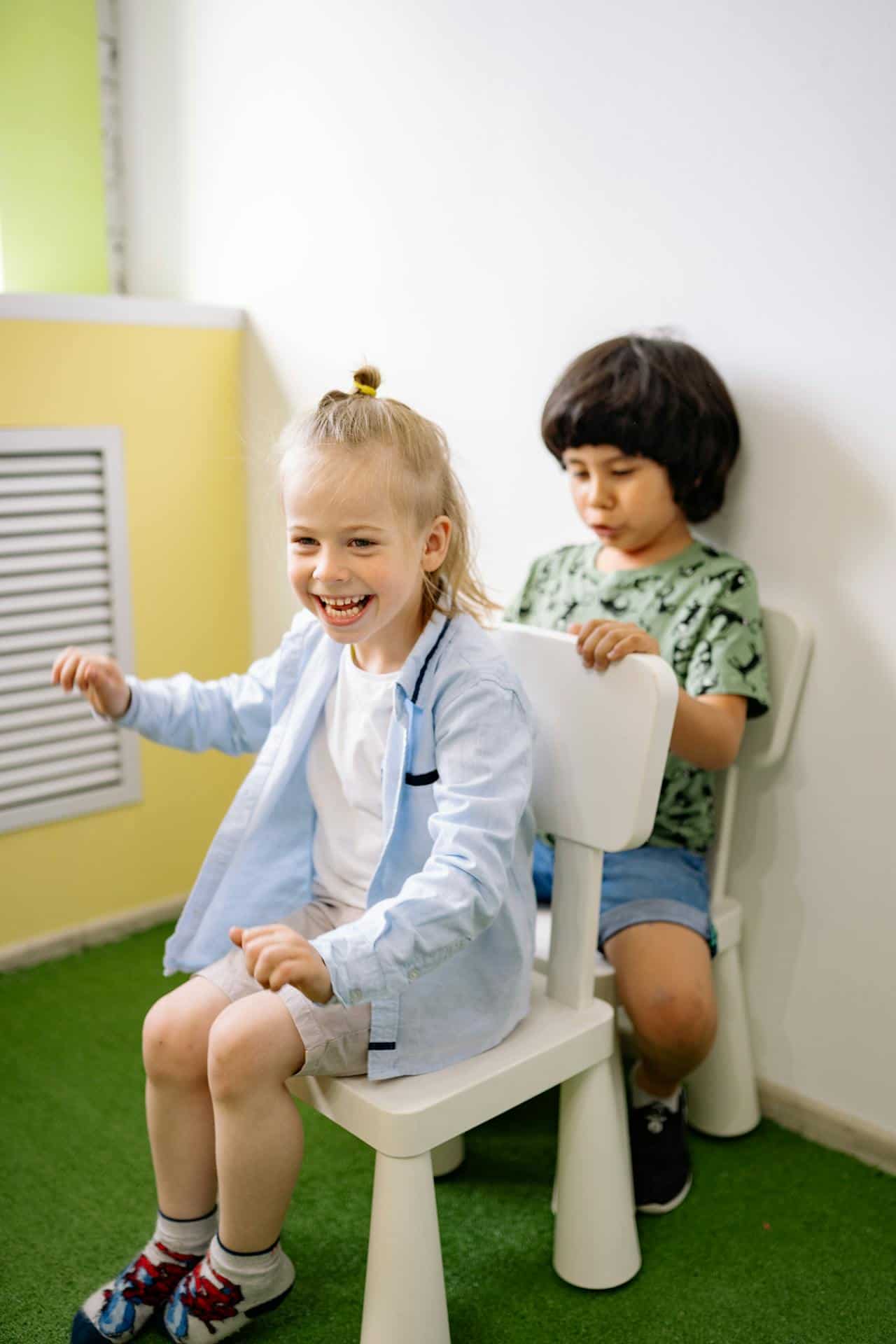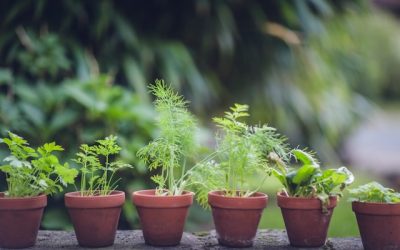Blog
5 Key Takeaways From The Plant Based Treaty Playbook On Early Childhood Education
July 26, 2024

It outlines multiple ways ECE centers can implement plant-based food policies, healthy menu transformation, and sustainable practices that will benefit not only the children but animals and our planet.
Health Benefits For Children
The Early Childhood Education Playbook states that scientific literature consistently shows it is at least as healthy to feed children a plant-based diet as an omnivorous one. It explains that eating more plants and less animal products helps reduce risk factors later in life such as cardiovascular disease that begins in childhood.

The Plant-Based Eatwell Guide demonstrates a balanced and healthy diet for all ages. Developed by Plant-Based Health Professionals (UK).
“Both the American Academy of Pediatrics and the Academy of Nutrition and Dietetics (A.N.D), the world’s largest group of nutrition experts, concur that a well-planned plant-based diet is suitable for infants and children. Furthermore, the A.N.D emphasizes that they may even offer additional health benefits for the prevention and treatment of disease.”
The Nutrients of Focus Guide for child-specific nutritional guidelines explains calcium, vitamin D, iron, vitamin B12, and more. The Plant-Based Health Professionals children’s guide is a useful source for educators and families as it features fact sheets, lists essential nutrients and vitamins for kids, and includes fun activities and educational books. The Plant-based Eat Well Guide developed by UK’s Plant-Based Health Professionals is another useful source. These dietary shifts align with the updated Canada Food Guide and are supported by organizations like the American Dietetic Association.
Meatless Mondays And Vegan Fridays

Meatless Mondays began in 2003 and has become a global movement whose mission is for everyone to go meatless one day a week for their health and the planet. Schools, hospitals, companies, and restaurants around the world have adopted the concept, resulting in multiple success stories. ECE’s can use Meatless Mondays’ outline to begin their own program and implement positive examples from other schools, or take it a step further and have a meat-free week, like Irish teacher Shaun Connaghan did through his highly successful “Eat Like a Champion Week”.
Vegan Fridays is another successful initiative encouraging students to eat healthier. Thanks to Mayor Eric Adams, over 1 million New York City students gained access to healthier lunch options. With over 1,7000 public schools participating, it’s a great way to teach kids the importance of eating healthy and making sustainable food choices early in life. This promotes good habits they keep with them throughout their lives, especially given the statistics of childhood obesity in the United States, where“1 in 6 children in the U.S. and 10% of children globally are classified as overweight or obese.”
Growing Fresh Food On Site
Kids love getting messy, so why not teach them to garden at school? Using their hands in the soil, planting seeds, watching them grow, and picking their own food encourages healthy eating and provides fun opportunities. Kids take great pride in these activities that also help fine motor skills, provide physical activity, and improve social skills. Bringing home fresh herbs to be used in meals encourages self-confidence and a love of nature. Schools can grow foods onsite to increase the supply of fresh and local foods in the school food supply chain, as demonstrated using the Hackney School of Food’s “Create Your Own School Food” Guide.
Creating a school fruit orchard or other seasonally appropriate crop is an excellent learning initiative, as outlined in the School Orchards Guide. Greenhouses are another way to create, grow food, and educate kids on the benefits of healthy and sustainable eating.
There are multiple ways to utilize a rooftop space, and for limited indoor spaces, vertical farm
stands are useful. If funding is an issue, there are grants to grow gardens such as Cornell Lab’s K-12 Education grant in the United States and Nutrients for Life in Canada.
Education And Awareness

Educators can make great strides towards ECE centers becoming more plant-based by raising awareness about the impacts of food choices and encouraging families to take action at home using simple meal swaps. Age-appropriate educational handouts can help kids come up with their own meal ideas and involve them in the decision-making process. Bringing plant-powered messages to classrooms and school cafeterias leads to a kinder planet for everyone.
ECE educators can raise students’ awareness of the impacts of food choices with lesson plans that focus on healthy eating, watching impactful videos as a group, and checking out resources from PETA kids. Younger kids can benefit and learn from books at their level that teach about empathy, the diversity of the planet, the value of community action, and appreciation of the world and all living beings.
ECE Centres Leading By Example
Want some inspiration? Check out what these amazing ECE Centers are doing as they lead the way to a healthier and kinder world. In Ontario, Canada, The Guelph Child Care and Learning Centre was the first Early Childhood Education center to adopt entirely plant-based menus. They reported a 65% monthly reduction in their carbon footprint while lowering food costs.
In the United States, California’s MUSE Global is a group of schools providing plant-based lunches to students from pre-kindergarten to high school. The schools focus on passion-based learning and sustainability. Proof of their commitment to the earth is their Seed-to-Table program, where students grow produce that is used in the school cafeteria.
In Australia, the first plant-based preschool, Sustainable Play, was founded. It provides fully plant-based and mostly organic meals and snacks to children aged two to six. In England, Jayne’s Nursery in Chelmsford partnered with a pediatric dietician to help it move towards a more plant-based menu.
With summer approaching, it’s the perfect time to reevaluate what early childhood education menus will look like when students return in the fall.

Miriam Porter is an award-winning writer who writes about veganism, social justice issues, and eco-travel. Miriam currently lives in Toronto with her son Noah and many rescued furry friends. She is a passionate animal rights activist and speaks up for those whose voices cannot be heard.
More from the blog
6 More Important Calls To Action From The Safe And Just Report – Part Two
By Miriam Porter
6 Important Calls To Action From The Safe And Just Report – Part One
By Miriam Porter
Grow Your Own Kale And Spinach For Healthy Green Smoothies
By Miriam Porter



